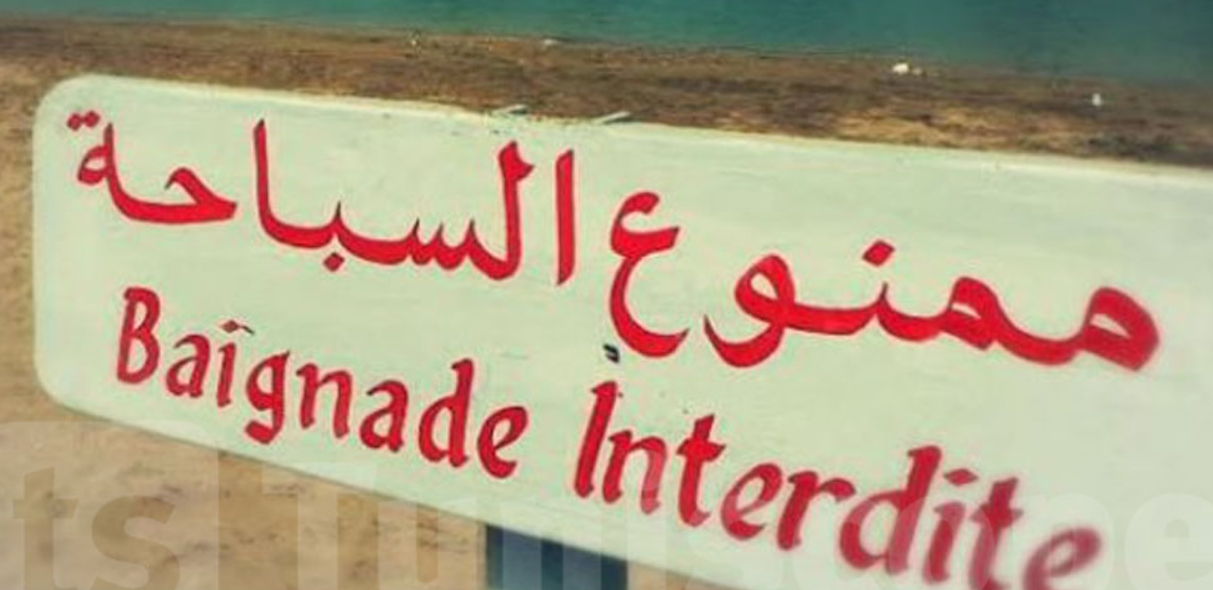The Director General of the Directorate of Environmental Hygiene and Environmental Protection (DHMPE) at the Ministry of Health, Samir Ouerghemmi, announced that laboratory analyzes and samples taken from several Tunisian beaches revealed that some of them were prohibited for swimming due to the poor quality of their waters, and are classified as black spots.
The 28 beaches concerned are:
Tunis: La Goulette Beaches: opposite Rue Casino, opposite Rue Fattouma Bourguiba.
Ben Arous: Energy station in Radès, One hundred meters south of Marouen beach in Radès, opposite the Civil Protection headquarters of Radès, one hundred meters south of the waste of Oued Meliane in Ezzahra, Radès, opposite the rubbish of Oued Maaizat in Ezzahra, at the level of the rubbish Oued Boukhamsa, opposite the street “Salsa Majeure” in Hammam Lif, opposite the rue 7 Novembre in Hammam Lif, opposite the Casino in Hammam Lif , opposite Salambo Avenue in Hammam Lif, opposite Habib Thameur Street in Hammam Lif, opposite Aziza Othmana Street in Hammam Lif, at the old trash in Hammam Lif, at the Oued trash Ayacha, opposite the Caraïbe hotel in Borj Cedria.
Nabeul: Opposite the Dar Chaabane wastewater treatment plant.
Bizerte: Baali Beach in Menzel Jmil, at the fishing port and at Sidi El Hachani in Menzel Abderrahmane, channel 1 and channel 2 of Zarzouna.
Sousse: Port of Sousse.
Gabès: Essalem Beach, detritus of the old Gabès city wadi.
Samir Ouerghemmi mentioned that 539 beaches are under surveillance, indicating that since the start of 2024, around 2000 samples have been taken for biological analyzes in search of indicators of fecal pollution.




